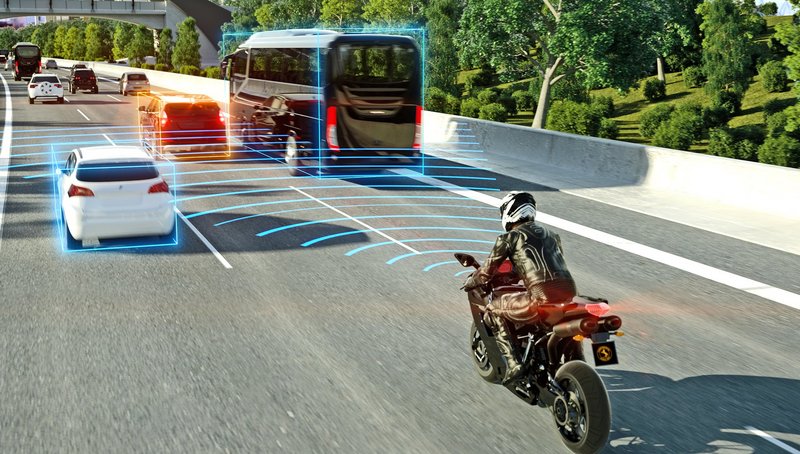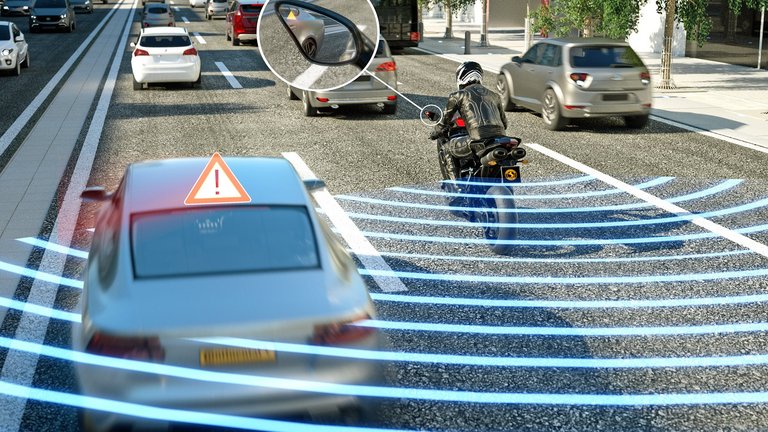On the go on two wheels: Continental ensures safety on motorcycles with Advanced Rider Assistance Systems
- Advanced Rider Assistance Systems combine safety and driving pleasure, and as electronic passengers, are indispensable and valuable companions.
- Future advanced rider assistance systems are the focus of the Milan Motorcycle Show EICMA 2017.
Frankfurt am Main, November 3, 2017. Safety and assistance systems for motorcycles are increasingly determining the riding process on two wheels and are part of the basic equipment on many motorcycles today. The first such pioneering system was the motorcycle ABS, which, in the European Union, has been mandatory for all newly developed model series since 2016 and mandatory for all newly sold motorcycles with an engine displacement of more than 125ccm since January 2017. Today, a large number of other assistance systems intervene in the riding process as standard, even before critical situations have occurred. As engine and chassis technology becomes increasingly complex, so too are electronic passengers becoming increasingly important – and it is already hard to imagine many high-tech motorcycles without them. Continental will be exhibiting its advanced rider assistance systems of the future at the Milan Motorcycle Show EICMA from November 7-12, 2017.
The ABS brake systems are the best example of unobtrusive, efficient operation with a high degree of effectiveness. For over ten years Continental has been developing and producing these systems for motorcycle manufacturers worldwide. This means that, right from the beginning of the process, our engineers can look back on decades of experience in brakes and sensors for passenger cars and commercial vehicles, and incorporate this into a broad range of advanced rider assistance systems for two-wheelers. When developing these systems, one special feature of riding a motorcycle remains a key focus: The assistance systems should preserve the motorcyclist's freedom to act. This is a motto that the engineers at Continental also follow: “Our systems support riders without patronizing them,” stressed Tobias Butz, project manager and development engineer for ARAS (Advanced Rider Assistance Systems) at Continental Engineering Services.
Relieving riders in all situations
Traffic Sign Assist is another unobtrusive but efficient promoter of awareness. It registers and signals speed limits and overtaking bans and indicates these to the rider. Blind Spot Detection can also help the rider to avoid critical situations when changing lanes. The rearwards facing radar detects traffic behind the rider and warns about any objects in the mirror's blind spot. Analysis of the traffic in front by camera and/or radar, in combination with the Forward Collision Warning or Emergency Brake Assist functions helps to prevent rear-end collisions with serious consequences. The vehicle surroundings sensors detect a sudden reduction in the distance from the vehicle in front within fractions of a second and warn the rider or – if the rider has both hands on the handlebars – can even initiate necessary braking. Adaptive Cruise Control also provides greater safety. It not only keeps the speed constant, but also the distance from the vehicle in front.
Headlight Assist relieves the motorcyclist of the task of switching the headlamp between dipped beam and main beam, once darkness falls. The system detects oncoming traffic and vehicles ahead and automatically switches to the optimal light setting to prevent dazzling other road users.
Sustainable for a safe future
Advanced rider assistance systems from Continental benefit from many years of experience in research and development for passenger cars and will make a long-term contribution towards “taking a giant step closer to our 'Vision Zero’ – a future without traffic fatalities, injuries and accidents,“ stressed Tobias Butz.
Broad range of ABS systems
Continental's powerful range of ABS systems extends from simple single-channel ABS for scooters and small motorcycles via the two-channel ABS MK 100 right up to the MK 100 MIB – Motorcycle Integral Brake system. This is for powerful motorcycles from a wide range of segments with advanced control functions, such as ABS for sport and offroad use, optimized curve braking or a holding function on hills to keep the motorcycle stationary without continuously operating the brakes. At 1140 grams, the most recent development, the MK 100 MIB EVO, is 500 grams lighter than its predecessor, and smaller too.
Press Conference on Tuesday, November 7, 2017, 12:45 to 1:15 pm
Continental will be presenting its advanced rider assistance systems of the future at the Milan Motorcycle Show EICMA from November 7-12, 2017, in Hall 15, Stand S27. Advance information will be provided at the press conference on November 7, 2017 from 12:45 to 1:15 pm at the Continental stand. Other pioneering motorcycle technologies from Continental will also be on display, including engine and exhaust management systems, transmission and chassis control as well as tire innovations for the new season. Continental experts from this division will be available on site to answer any questions you may have.
More information at www.continental-motorcycle.com.


